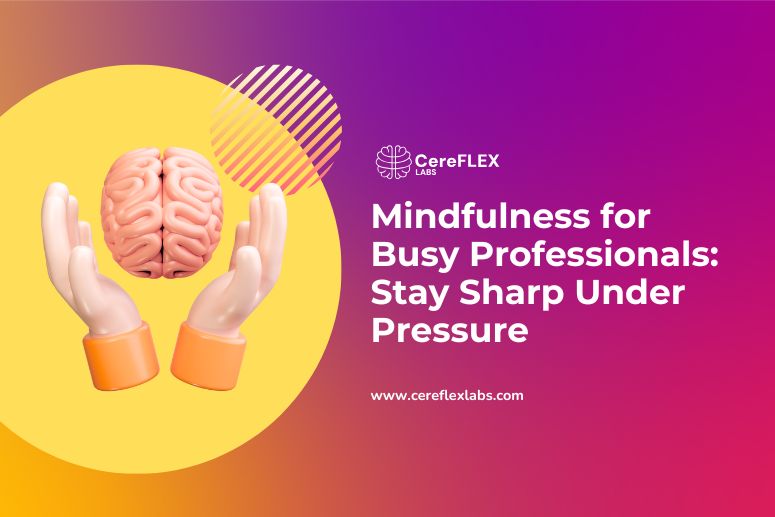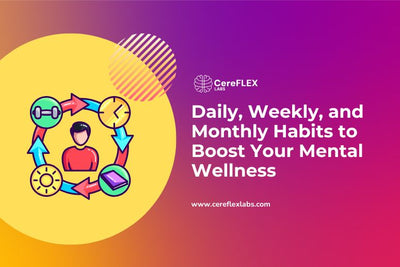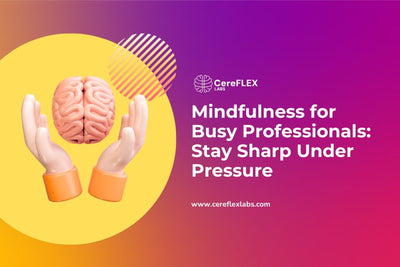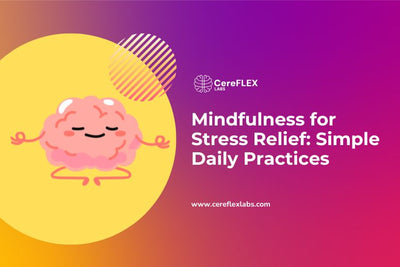The pressure to perform, respond, and deliver can quietly wear down even the most capable professionals. Mental fatigue builds. Focus slips. Stress becomes the default.
Slowing down might seem impossible. Yet the solution isn’t stepping away from work. It's changing how you move through it.
Mindfulness offers a practical, science-backed way to work with more clarity and intention. Even brief moments of awareness can sharpen decision-making, improve emotional control, and create mental space in the middle of chaos.
For busy professionals, mindfulness isn’t about escaping the pace of work. It’s about navigating it more effectively, using simple habits that fit naturally into your day.
Here is the Quick Answer |
|
Mindfulness helps busy professionals stay sharp, reduce stress, and improve emotional control—even with limited time. Simple techniques like mindful breathing, focused listening, intentional pauses, and single-tasking can be woven into your existing routine in as little as one minute. Practiced consistently, mindfulness supports focus, resilience, and better decision-making, especially when paired with tools like Cereflex Labs’ AM/PM Protocol for all-day cognitive support. |
Why Mindfulness Matters for Busy Professionals

Mindfulness isn’t just a wellness trend. It’s a performance tool.
If you’re a team leader managing multiple deadlines, a remote worker juggling distractions, or a founder pulled in a dozen directions, mindfulness offers a practical, science-backed way to stay clear, calm, and effective.
At its core, mindfulness is about creating space—space to think, breathe, and respond instead of react.
It’s the practice of paying full attention to the present moment without judgment. Even a few minutes a day can change how you handle stress, make decisions, and interact with others.
Reduces Stress and Prevents Burnout
Stress is one of the biggest productivity killers in the workplace. Left unchecked, it often leads to burnout—a state of mental and physical exhaustion that’s hard to recover from.
Mindfulness helps by teaching your brain to pause before reacting. This mental reset builds resilience, allowing you to face high-pressure situations with clarity instead of panic.
It also supports healthy cortisol regulation, which plays a key role in managing stress responses.
Professionals who practice mindfulness regularly often report lower anxiety, better sleep, and fewer emotional outbursts.
Research backs this up. In one study, teachers who completed a modified Mindfulness-Based Stress Reduction (mMBSR) program saw lower stress levels, reduced burnout, and improved emotional regulation. Their classroom performance and organization also improved.
In contrast, the control group (those who didn’t practice mindfulness) experienced increased burnout and worsening cortisol function, a marker of chronic stress.1
The takeaway: mindfulness is more than a mental break. It’s an active strategy for protecting your well-being in high-demand environments.
Enhances Focus and Cognitive Performance

In a world full of notifications and multitasking, the ability to focus deeply is becoming rare and valuable.
Mindfulness trains the brain to concentrate on one thing at a time. This improves accuracy, speeds up task completion, and reduces mental fatigue.
Studies show mindfulness can boost attention span, strengthen working memory, and improve overall concentration. These benefits extend beyond the moment of practice and into daily work performance.
One study found that mindfulness training significantly improved participants’ perceived stress levels and cognitive flexibility, meaning they could adapt their thinking more easily.
Performance gains didn’t disappear quickly either. Benefits were still measurable three months after training ended, showing that even short-term programs can have lasting effects.2
For busy professionals, this means fewer errors, more mental clarity, and the ability to handle complex problems with greater efficiency.
Improves Emotional Regulation and Interpersonal Skills
Success at work isn’t only about meeting deadlines. It’s also about how you manage yourself and interact with others.
Mindfulness strengthens emotional intelligence, helping you notice your reactions before they escalate. This makes it easier to stay calm during tense conversations or high-pressure moments.
It also improves empathy, allowing you to listen more fully and respond with understanding rather than defensiveness. This can reduce workplace conflict and build stronger professional relationships.
Evidence-based programs like Mindfulness-Based Stress Reduction (MBSR) and Mindfulness-Based Cognitive Therapy (MBCT) have been shown to ease anxiety and depression. They often work as well as cognitive-behavioural therapy (CBT) and can be integrated into it for even better results.3
In practice, this means you can navigate tough meetings, negotiations, or feedback sessions with more composure, and leave less emotional “damage” behind.
Supports Work-Life Balance and Mental Clarity
A demanding job can blur the lines between work and personal life, making it hard to switch off. Mindfulness helps you create mental space so you can be fully present—whether you’re at your desk or at home.
Even 10 minutes of mindful breathing or reflection can act as a reset button. This short pause can help you let go of work stress before you transition into personal time.
The practice also encourages intentional slowing down. Instead of rushing from one task to the next, you take moments to pause, assess, and respond thoughtfully. Over time, this can improve both job satisfaction and personal fulfilment.
This isn’t about escaping your workload. It’s about being more effective and grounded within it.
Mindfulness ROI: A Few Minutes = Major Gains
A common objection is, “I don’t have time to be mindful.” In reality, mindfulness isn’t another chore. It’s a tool that makes your workload easier to manage.
Just 10 minutes a day can lead to:
- Clearer thinking
- Better focus and task completion
- More stable energy levels
- Greater emotional control in high-pressure moments
Think of it as a mental reset that keeps you performing at your best, even during long, demanding days.
➤ For busy professionals looking for additional support, pairing mindfulness with nootropics for energy and focus can help sustain mental stamina throughout the day.
What are some mindfulness techniques for busy professionals?
You don’t need long meditation sessions or a silent retreat to practise mindfulness. Even during a packed workday, you can reset your mind, improve focus, and reduce stress in just a minute or two.
Here are practical techniques you can integrate seamlessly into your routine:

Try the Mindful Minute
Take one full minute to focus only on your breathing.
- Inhale slowly through your nose.
- Exhale through your mouth or nose.
- Notice the air filling your belly, ribs, and chest.
Repeat a few times a day—at the start of work, after lunch, or before logging off.
Take Mindful Pauses with Gratitude
Set a reminder on your phone or computer. When it chimes, pause for three deep breaths and reflect on:
- Something you’ve achieved today
- A positive interaction you’ve had
- One thing you’re grateful for
Practice Mindful Listening

In your next conversation or meeting:
- Give full attention to the speaker
- Avoid planning your response while they talk
- Maintain open body language and steady eye contact
Breathe Between Tasks
Before moving from one task to another, pause for 5–10 slow, deep breaths.
- Feel your feet on the ground
- Release the last task from your mind
- Prepare mentally for the next one
Integrate Mindfulness into Everyday Actions
Make ordinary moments mindful:
- Notice the sound and smell of coffee brewing
- Feel your footsteps between meetings
- Pause to reread an email before hitting “send”
Use ‘Visual Reminders’ and Code Words
Place sticky notes on your desk with cues like “Breathe” or “Be Here Now.”
Choose a code word (such as balance) and each time you see or hear it, take a mindful breath.
Go on Mindful Walks (Without Tech)

Take a 5-minute walk without your phone. Pay attention to:
- How your body moves
- Sounds and smells around you
- The feel of the air on your skin
Focus on One Thing at a Time
Multitasking drains energy and reduces accuracy. Fully complete one task before starting another.
Mindful Appreciation
Pause for 30 seconds to notice something you usually overlook, such as warm sunlight, a kind colleague, or the taste of fresh coffee.
Practice Mindful Stretching

Stand, stretch, and move every hour.
- Focus on how your muscles feel
- Avoid forcing movement—breathe into it
Set Daily Intentions
Before starting work or entering a meeting, ask yourself: How do I want to show up right now?
Notice 5 Things
When you feel scattered:
- Take 5 slow breaths.
- Name 5 things you see.
- Name 5 things you hear.
- Name 5 sensations you feel.
How to Stay Consistent Despite a Busy Schedule
Mindfulness only works when it becomes part of your daily rhythm.
You don’t need more willpower. You need ways to make it easy and automatic.
1. Stack Mindfulness Onto Existing Habits
Link it to something you already do:
- Take three slow breaths after brushing your teeth.
- Do a quick body scan while waiting for your coffee.
- Pause for gratitude before turning on your computer.
When mindfulness is tied to an existing habit, it becomes second nature.
2. Schedule It Like Anything Else
If it matters, make time for it.
Block a two-minute pause in your calendar between meetings.
Set a daily reminder for mid-afternoon breathing or stretching.
Treat mindfulness like any other high-priority task.
3. Lean on Accountability and Community
You’re more likely to stick with it when you’re not doing it alone.
Join a short mindfulness challenge, pair up with a colleague, or check in with a friend.
Small doses of support can keep your practice going, even on the busiest days.
Conclusion
Mindfulness isn’t about escaping your busy life.
It’s about meeting each moment with more clarity, calm, and focus, no matter how packed your schedule.
Even a few minutes of practice each day can help lower stress, improve concentration, and strengthen emotional control.
Small, consistent steps build lasting mental resilience.
At Cereflex Labs, we developed the AM/PM Protocol to complement busy lifestyles.
This two-part daily supplement routine is formulated with vitamins, minerals, and antioxidants that are used to support normal cognitive health, help protect cells from oxidative stress, and contribute to overall well-being.
- The AM Brain Morning Formula supports cognitive function and helps protect cells against oxidative damage with its antioxidant blend. It also provides daily multi-vitamin and mineral support to help maintain overall health.
- The PM Cognitive Support Evening Formula enhances cognitive function and memory, supports peripheral circulation, and provides antioxidants that help protect cells against free radical damage.
Always consult a healthcare professional before starting a new supplement, especially if you have a health condition or are taking medication.
Mindfulness sets the tone for a balanced mind.
When paired with the right support, it can help you stay present, productive, and focused from morning to night.






